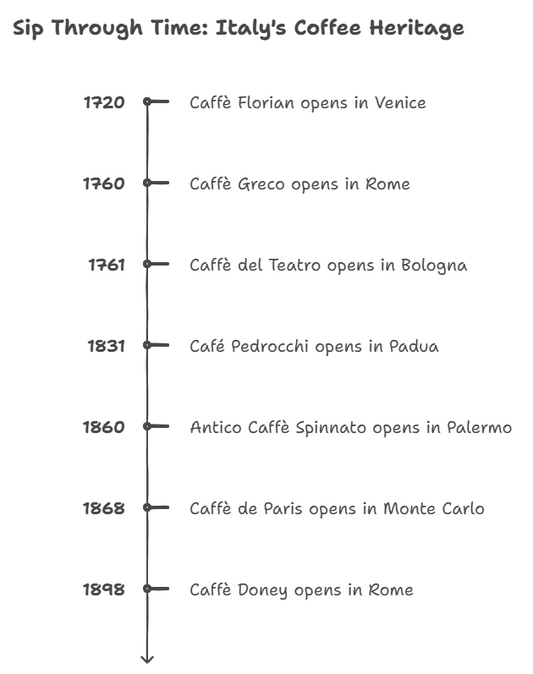
The First World War was a defining moment in modern history, and Italy's decision to join the Allies had significant consequences for the outcome of the war. Italy had originally been allied with Germany and Austria-Hungary, but in 1915, it switched sides and joined the Allies. This decision was driven by various factors, including political, economic, and territorial motivations.
Experts viewed Italy joining the Allies in World War I from a mix of political, economic, and territorial motivations, including the desire to assert its power, gain new territories, and secure its economic interests. The Treaty of London promised Italy significant territorial gains in exchange for its support, but the decision was controversial within Italy, with some factions and members of the public opposing the war. Italy's entry into the war helped break the stalemate on the Western Front and placed significant pressure on Austria-Hungary, contributing to the Allied victory
Expert Opinions of Italy Joining Axis
According to historian Richard Bosworth, "Italy joined the war for a range of reasons, including the desire for territorial gains and to be on the winning side." Bosworth argues that Italy's decision to switch sides in the war was influenced by the deteriorating military situation of its former allies, Germany and Austria-Hungary.
Another historian, Hew Strachan, notes that Italy's entry into the war was a "decisive moment" in the conflict, as it helped break the stalemate on the Western Front and placed significant pressure on Austria-Hungary. Strachan also emphasizes the importance of Italy's contribution to the Allied victory, stating that "without Italy's participation, it is unlikely that the war would have ended in 1918."
In terms of Italy's territorial motivations, historian John Gooch argues that the Treaty of London was "a key factor in Italy's decision to join the Allies," as it promised Italy significant territorial gains in exchange for its support. However, Gooch also notes that the promise of territorial gains was not universally popular in Italy and that some political factions and members of the public opposed the war.
Political Motivations
Italy's decision to join the Allies was primarily driven by political motivations. Italy had been a member of the Triple Alliance, an agreement between Germany, Austria-Hungary, and Italy, since 1882. However, this alliance was strained, and Italy had longstanding tensions with Austria-Hungary over territorial disputes in the Balkans. Furthermore, Italy was wary of Germany's aggressive foreign policy and its attempts to dominate Europe.
Italy's pursuit of territorial expansion was another key factor in its decision to join the Allies. Italy had longstanding irredentist claims, which sought to reunify Italian-speaking territories under Italian rule. These claims included the Austrian province of Trentino, parts of the Balkans, and parts of the Ottoman Empire. France and Britain, both members of the Triple Entente, supported Italy's territorial ambitions and promised to reward Italy with these territories if it joined the Allies.
Finally, Italian nationalists and public opinion played a crucial role in shaping Italy's foreign policy. Nationalist sentiment was on the rise in Italy, and many Italians believed that the country had been mistreated by its allies in the Triple Alliance. Italy's political leaders were under pressure to address these concerns and deliver a foreign policy that was more in line with the aspirations of the Italian people.
Economic Motivations
Economic motivations also played a significant role in Italy's decision to join the Allies. Italy was heavily dependent on trade with Britain and France, and the prospect of losing these economic ties, if it remained neutral, was a significant concern. Furthermore, the war had already caused significant damage to Italy's economy, and it needed external aid to help it recover.
Italy also saw the war as an opportunity to expand its influence in the Balkans and the Middle East. Italy's colonial ambitions in Africa and the Ottoman Empire were well known, and joining the Allies offered Italy the chance to gain territory and resources in these regions.
Territorial Motivations
Territorial motivations were perhaps the most significant factor in Italy's decision to join the Allies. Italy had longstanding irredentist claims, which sought to reunify Italian-speaking territories under Italian rule. The Treaty of London, signed between Italy and the Allies in April 1915, promised Italy large swathes of territory in exchange for joining the war. This included the Austrian province of Trentino, the city of Trieste, and parts of the Balkans and the Ottoman Empire.
Italian nationalism and the idea of a "united Italy" also played a crucial role in shaping Italy's foreign policy. Italian nationalists believed that Italy had been unfairly treated in the past and that the country needed to assert its power and influence on the world stage. Joining the Allies offered Italy the chance to achieve its territorial ambitions and become a major player in the post-war settlement.
However, Italy's territorial motivations were not without controversy. Many Italians saw the Treaty of London as a betrayal of Italy's alliance with Germany and Austria-Hungary, and the promise of territorial gains was not universally popular. In fact, the decision to join the Allies was controversial within Italy itself, with some political factions and members of the public opposing the war.
When we think about World War II, did you know that Italy actually declared war on the United States during the war? This surprising move by Italy has left many people wondering why they would choose to go up against one of the world's most powerful nations. We will explore the reasons behind Italy's decision and the impact it had on the course of the war.
Conclusion
In conclusion, Italy's decision to join the Allies in the First World War was driven by a complex mix of political, economic, and territorial motivations. Italy saw an opportunity to assert its power and influence, gain new territories, and secure its economic interests. Furthermore, joining the Allies offered Italy the chance to address longstanding grievances and nationalist aspirations.
Italy's decision to switch sides in the war had significant consequences for the outcome of the war. Italy's entry into the war helped break the stalemate on the Western Front and opened up a new front in the Balkans, which placed significant pressure on Austria-Hungary. Furthermore, Italy's contribution to the war effort helped secure the Allied victory, and its territorial gains in the post-war settlement helped reshape the political map of Europe.
Despite the controversies surrounding Italy's decision to join the Allies, it remains an important moment in Italy's history and a testament to the complex political and economic forces that shaped the course of the First World War.
During World War II, Italy was a part of the Axis powers, but its military performance was not up to par with its German and Japanese counterparts. Why was the Italian army considered weak during the war? From political instability to poor leadership, there were several factors that contributed to Italy's inability to effectively fight in the war. In this article, we will explore the reasons behind Italy's weak military performance during World War II.




